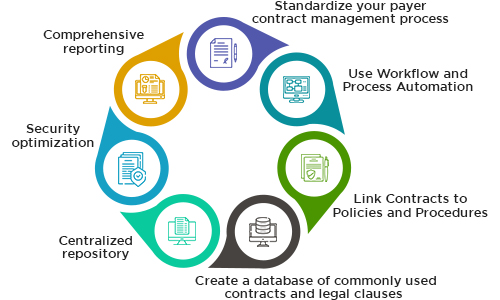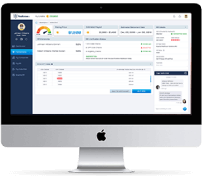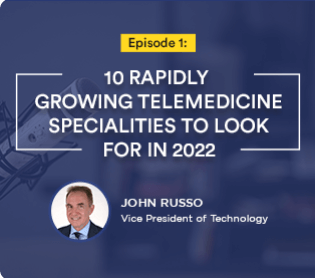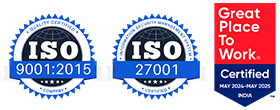Introduction
Healthcare companies face many challenges, such as rising insurance costs, increased HIPAA regulatory standards, reduced government funding, mergers and acquisitions, the need for better practice management, and the pressure to deliver a patient-centric experience.
For these reasons and more, healthcare contract management is integrating digital transformation for modernizing procedures and enhancing operational efficiencies. Hospital contract management also leverages data for enforcement and insight, and it involves automating healthcare contract management for healthcare facilities. Healthcare contract management software is essential in many organizations.
The main aim of cloud-based healthcare contract management software is to help providers with population health management. Healthcare payer contract management software enables providers to conduct daily operations smoothly. The healthcare software product industry is scalable based on the organization’s needs. For instance, independent practices require different features than large medical centers. Comprehensive healthcare management solutions offer healthcare interoperability and allow your staff to receive training and work on a single interface.
Healthcare Contract Management Software 101
Medical contract management software helps to effectively manage the thousands of contracts with different vendors, individuals, and organizations in healthcare. Healthcare contract management solutions allow organizations to provide the best care services to patients, reduce operation costs, ensure compliance requirements, and mitigate risks. An efficient physician contract management software simplifies healthcare contract management by streamlining, creating, routing, reviewing, and approving contracts.
The top 7 best practices for healthcare contract management

1. Standardize your payer contract management process
The creation and revision of contracts in healthcare can be complex and consist of different parties outside and within healthcare networks. Therefore, the process of contract management systems in healthcare must be standardized to ensure the consistent implementation of all the necessary steps.
Since multiple medical contracts get created and transferred throughout the healthcare organization for submissions, corrections, approvals, and signatures, there is a requirement for a standardized process. It will ensure the completion of essential tasks at every step of the contract drafting. Additionally, the hospital contract manager can also minimize the mistakes and save time.
2. Use Workflow and Process Automation
This is the best electronic health record management practice that you cannot skip. Automation in healthcare contract management practices streamline workflow, improves health analytics, and manages health informatics better. It speeds up the drafting and review process of contract administration in healthcare, which enhances patient engagement and healthcare business growth.
Automated workflows send regular reminders to individuals about contract and termination dates, key obligations to be met, etc. It creates transparency in healthcare management and manages efficient contract creation and revision.
3. Link Contracts to Policies and Procedures
Medical contract management is about regulatory compliance and adherence to strict security and privacy guidelines. Healthcare organisms need to manage medical billing and patient medical records and ensure HIPAA compliance. Policies/procedures are integrated with healthcare contract management software.
A proficient healthcare payer contract management software potentially links every contract to relevant procedures and policies, ensuring smooth integration from a compliance point of view. That is why providers need to adopt electronic contract management in healthcare and a policy management system.
4. Create a database of commonly used contracts and legal clauses
How often does your healthcare organization deal with undistinguishable clauses in the contracts? I’m sure it is pretty often. Did you know that you can save time by adding these clauses automatically into your hospital contract management systems? Your organization’s legal team can determine which provisions are commonly used, written, and stored in your healthcare contract management solutions. Creating a database for the frequently-used legal clauses and automating them can enable you to save time. Besides this, common contracts can be converted into templates for system storage.
5. Centralized repository
The healthcare industry involves a lot of paperwork daily, making efficiently organizing different files difficult. A centralized repository in hospital contract management software can help you reduce documentations. Using a healthcare contract management system, you can add custom tags and search options for locating specific folders and files, etc.
This helps in completing tasks quickly, such as contract reviewing, simplifying decision-making based on precise information. Healthcare contract management services enable recognizing opportunities within contracts for bond strengthening and benefit from collaborating with vendors, partners, and others.
6. Security optimization
Healthcare provider contracts consist of electronic data exchange and storing them. That is why high security is of prior importance for healthcare contract management software.
It is crucial to ensure server compliance with required rules and regulations and set up a user hierarchy and two-factor authentication to secure healthcare contract management. Additionally, you can add digital watermarks on healthcare files to prevent unauthorized sharing.
7. Comprehensive reporting
After successfully organizing your healthcare contract management software and automated alerts to meet deadlines, you must ensure effective reporting. Firms must ensure that reports reflect enhanced contract transparency and regulatory compliance. Comprehensive reporting in healthcare contract management software improves contracts’ transparency and illustrates that your healthcare organization has systems in place to address the regulations.
Failing to report in healthcare contracts proactively can cause issues for the internal compliance team and regulations. Compliance regulations help you implement adequate systems and healthcare processes. Healthcare contract management software simplifies the creation of reports and speeds up the entire process.
Conclusion
This list of best practices would help you create the best healthcare provider contract management solution. Healthcare contract management companies are all about going digital and adopting practices to streamline the processes, minimize the risks/costs, and meet regulatory compliance. OSP can create custom software solutions for a healthcare contract management system that will enable you to stand on top of the competitive healthcare industry.
OSP is a trusted software development company that delivers bespoke solutions as per your business needs. Connect with us to hire the best talents in the industry to build enterprise-grade software.

How can we help?
Fill out the short form below or call us at (888) 846-5382
Looking for software solutions to build your product?
Let's discuss your software solutions for your product in our free development acceleration call!
Get In Touch arrow_forwardDiscuss Your Project Handover with a team of expert Book a free consultation arrow_forward
About Author

Written by Riken Shah linkedin
Riken's work motto is to help healthcare providers use technological advancements to make healthcare easily accessible to all stakeholders, from providers to patients. Under his leadership and guidance, OSP Labs has successfully developed over 600 customized software solutions for 200+ healthcare clients across continents.

















